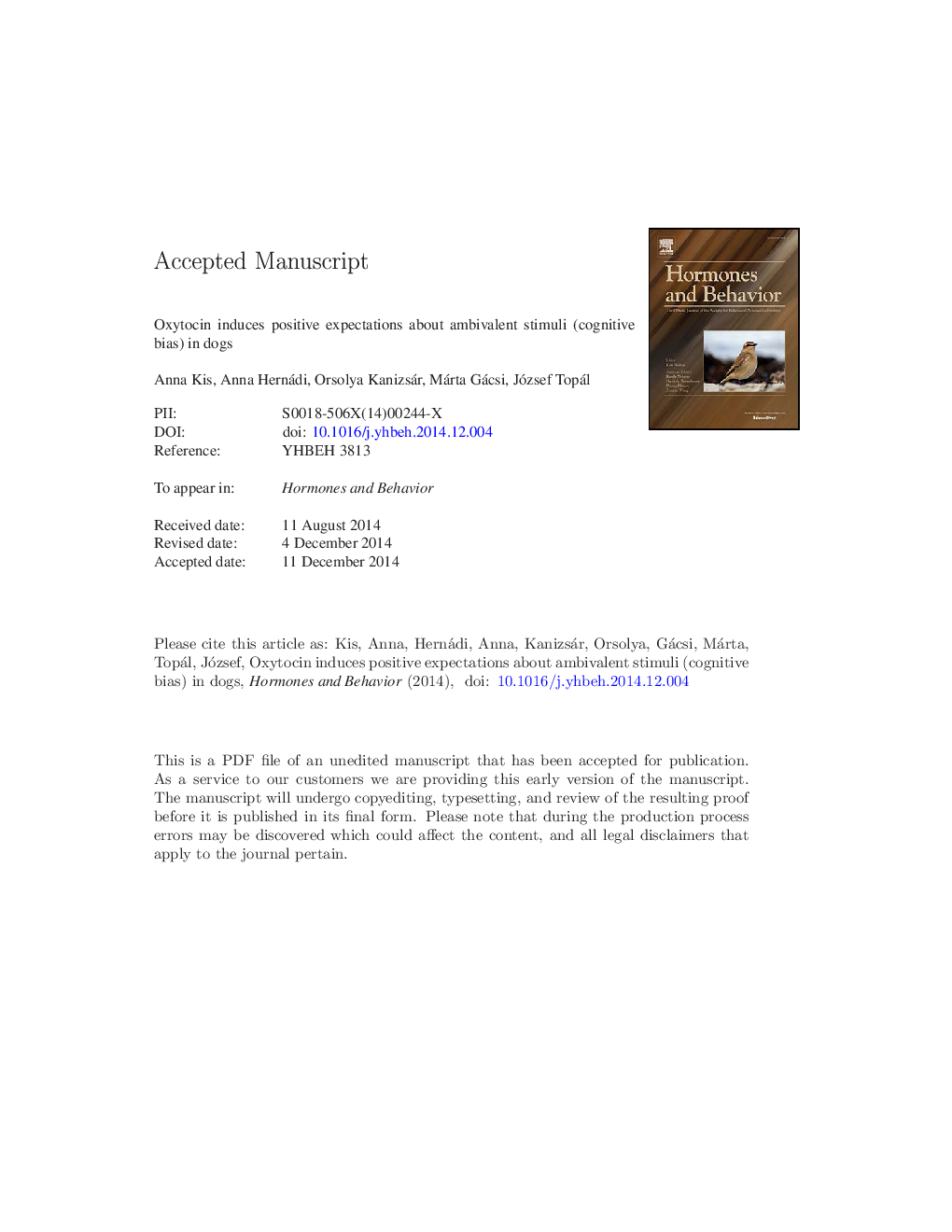| Article ID | Journal | Published Year | Pages | File Type |
|---|---|---|---|---|
| 6795074 | Hormones and Behavior | 2015 | 26 Pages |
Abstract
Expectancy bias towards positive outcomes is a potential key to subjective well-being, and has been widely investigated in different species. Here we test whether oxytocin, suggested to play a role in human optimism and emotional processing, influences how dogs judge ambivalent situations (in a cognitive bias paradigm). Subjects first learned in a location discrimination task that a bowl either contained food (at the 'positive' location) or was empty (at the 'negative' location). Then, after receiving oxytocin or placebo nasal spray, they were presented with the bowl located halfway between the positive and negative positions in communicative or non-communicative contexts (NÂ =Â 4Â ÃÂ 16). A Positive Expectancy Score was calculated for each subject using the latency to approach this ambivalent location. Compared to placebo groups, subjects that received oxytocin pretreatment showed a positive expectation bias in both contexts, and this effect was more pronounced in the communicative context. Our study provides the first evidence for the impact of oxytocin on dogs' judgement bias and also shows that the social-communicative nature of the task situation modulates the effect of oxytocin.
Related Topics
Life Sciences
Biochemistry, Genetics and Molecular Biology
Endocrinology
Authors
Anna Kis, Anna Hernádi, Orsolya Kanizsár, Márta Gácsi, József Topál,
